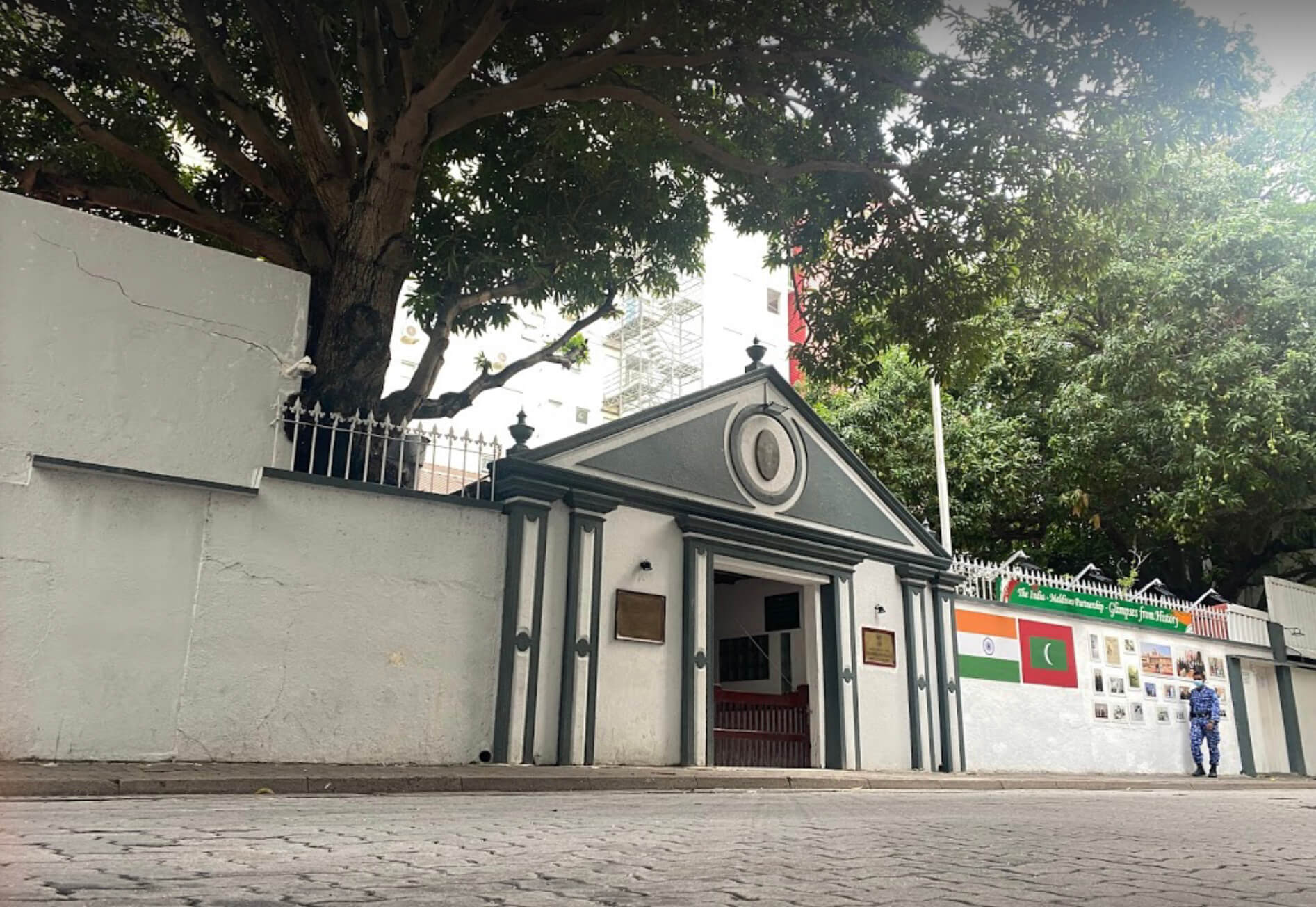The Maldivian Foreign Affairs Ministry launched an investigation on Saturday into a statement by opposition leader Abbas Adil Riza, calling un supporters to burn the Indian High Commission in Male. The ministry condemned Riza's comments as an attempt to incite arson and terrorism against India. Authorities arrested him a day later.
The government release said it had taken the necessary precautionary measures, reiterating that authorities would not tolerate such “malicious” attacks on diplomats’ security and public safety. In addition, the government has called on the Maldives Media Council to take action against media houses that spread such false and malicious information about foreign diplomats.
On Friday, Riza took to Twitter to accuse the Indian government of supporting Maldivian Democratic Party (MDP) workers’ protest that led to the arson and unrest in Addu City in February 2012. The violence came in response to the overthrow of former President Mohamed Nasheed. Highlighting that the Maldives had not received any compensation for the incident, Riza called for revenge against New Delhi by orchestrating a similar attack against the Indian High Commission.
MRM strongly condemns this cowardly incitement of arson and terrorism, targeted at @HCIMaldives. We call on authorities to investigate and take strong action against this, and such other acts of hate speech instigating violence.@AmbMunu @PoliceMv @MNDF_Official https://t.co/R9VhxJY2zg
— Maldives Reform Movement (MRM) 🇲🇻 (@MRM_Office) December 23, 2022
The statement has drawn criticism against the opposition, given that Abbas Riza is an influential leader from the opposition Progressive Party of the Maldives (PPM). He also served as the government spokesperson during former President Mohamed Waheed’s term from 2012 to 2013. In addition, he was appointed by former President Abdulla Yameen Abdul Gayoom as the Minister of State for Finance and Customs Commissioner during his five-year tenure from 2013 to 2018.
The ruling MDP issued a statement urging the opposition and allied media houses to refrain from instigating anti-India sentiment. The party said the opposition-led campaign was a well-financed and organised attempt to ruin relations with India.
Several political parties condemned Riza’s call for violence against the Indian High Commission. For instance, the Maldives Third-Way Democrats criticised Riza’s comments and stressed that India is the Maldives’ closest ally that has supported it in times of need.
We, MNP, strongly condemn the incitement of an arson attack on the Indian High Commission in the Maldives. We call on the authorities to do a thorough investigation into this, and the incitement of terror and violence will in no way damage the excellent relations between 🇮🇳 🇲🇻
— Maldives National Party (@MNP_Secretariat) December 23, 2022
To this end, the Maldivian opposition released a statement highlighting that the media is the fourth pillar of democracy and condemning any hindrances to freedom of the press, particularly attacks on specific journalists. It urged authorities to ensure the safety and security of media persons in the Maldives and to act against any foreign influence in preventing reportage on specific issues.
This is the latest push in the Maldivian opposition-led India Out campaign launched in 2018, wherein they criticised the government’s decision to sign “secret agreements” with India that allowed it to establish military bases in the country. There have been several opposition-led protests countrywide in support of the campaign.
The Maldivian Foreign Ministry has previously accused opposition-run media house Dhiyares of inciting violence against diplomats and foreign missions on social media. It has blamed the publication for using its political motivations to tarnish the image of foreign allies, thereby endangering long-standing friendships.
We cannot hold an independent election while a foreign power maintains a rogue military presence to enact their will on our domestic affairs. #IndiaOut pic.twitter.com/lQ0FxxgsRC
— Hamdhan Shakeel (@HamdhanShakeel) December 23, 2022
The opposition-led anti-India sentiment resulted in a mob attack on the Indian High Commission in June during a yoga event. At the time, there were speculations that the flags flown by the rioters were the same as those used in a rally by the PPM.
Nevertheless, during a meeting with Indian Foreign Affairs Minister S. Jaishankar in August, Maldivian Prime Minister Ibrahim Solih reassured his commitment to the ‘India first’ policy.
The political back-and-forth has grown over the past year, given that the country will hold its presidential elections in 2023.

